Nutrition
All puppies and dogs must have access to clean water and a well-balanced, nutritious diet. Proper nutrition provides a dog’s most basic needs by allowing that dog to remain in good health and full of energy.
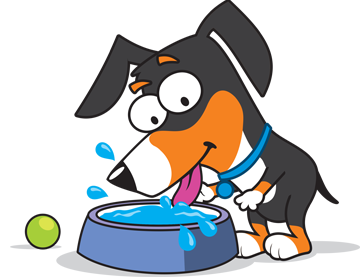
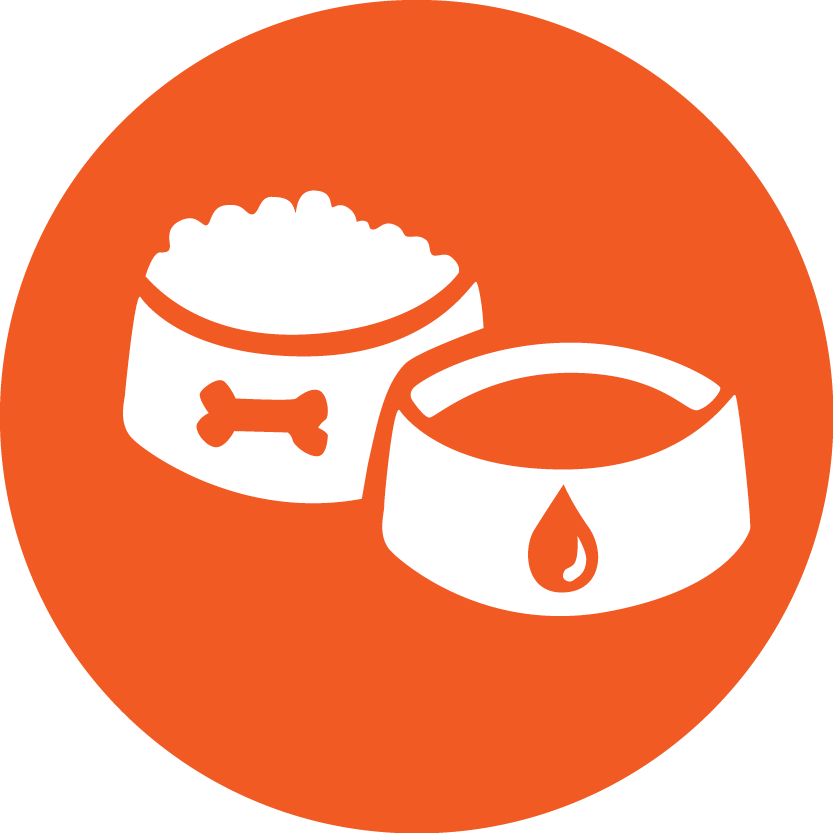
All puppies and dogs must have access to clean water and a well-balanced, nutritious diet. Proper nutrition provides a dog’s most basic needs by allowing that dog to remain in good health and full of energy.

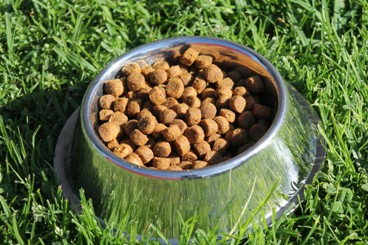
The food that a dog needs depends on their size, age and lifestyle. For every dog, a nutritionally balanced diet throughout their life is key to promoting good health.
Feeding your dog a complete commercial pet food is the best way of ensuring they get all the nutrients they need.
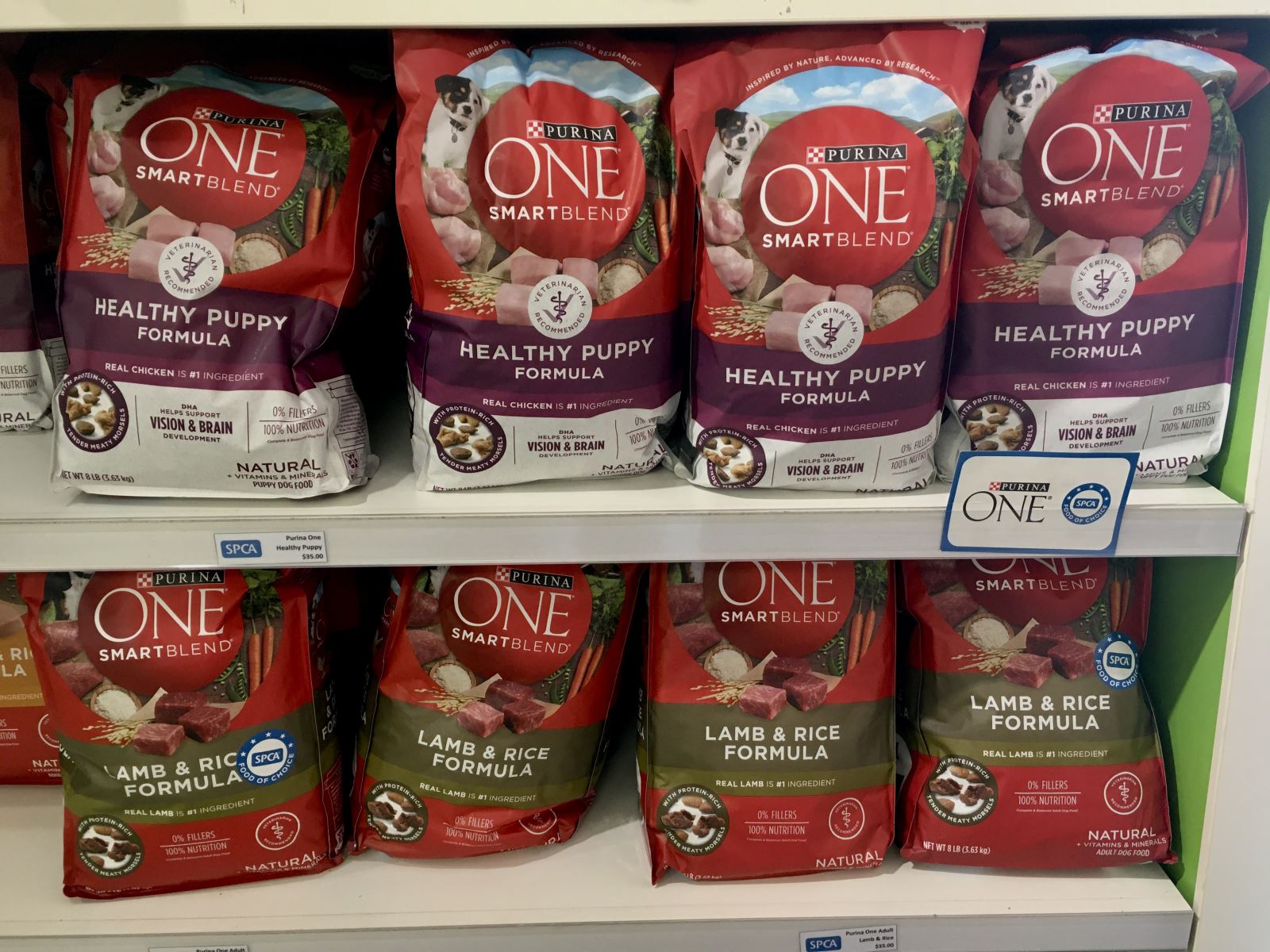 Do you eat the same amount as a one-year-old? Or how about your Dad or Uncle – do they eat more than you? ‘Life-stage feeding’ means feeding your dog different food at different ages or stages of their life, according to their needs. For example, puppies need food containing more calories because they are so energetic.
Do you eat the same amount as a one-year-old? Or how about your Dad or Uncle – do they eat more than you? ‘Life-stage feeding’ means feeding your dog different food at different ages or stages of their life, according to their needs. For example, puppies need food containing more calories because they are so energetic.
Many commercially made pet foods are available for different life stages; for example, puppy, junior, adult and senior.
Life-stage feeding is good because it matches a dog’s food to what is needed at different ages. It is really important though to remember to always introduce the new food gradually, by mixing the new food in with the old food (the food you have been feeding your dog). Slowly add more of the new food and less of the old food each time – to avoid giving your dog or puppy a very sore stomach.
Unfortunately, vets are seeing more and more pets that are overweight. This is called obesity. When a dog is really overweight, it has reduced quality of life such as not wanting to play or having difficulty breathing. It also causes serious health problems such as arthritis and diabetes. Preventing obesity depends on having the right food in the right amounts and giving your dog the right amount of exercise.
The importance of feeding your dog the right amount is just as important as choosing the right food for your dog’s size, age and lifestyle. Most commercially made pet foods will have daily feeding guides printed on their packaging. Follow these guidelines on the packet to ensure you are feeding the correct amount.
It’s usually best to feed adult dogs twice a day. Puppies need feeding more often, with smaller amounts. Remember, different dogs have different needs, so always check with your dog’s vet if you are ever unsure of what, how much or how often to feed your dog.
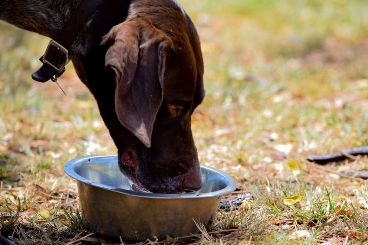 Just like people, most of a dog’s body is made up of water – 80% of it in fact!
Just like people, most of a dog’s body is made up of water – 80% of it in fact!
Water is absolutely essential for every function of its body. A dog needs water because without water, a dog is not going to survive for very long.
Your dog should have easy access to fresh, clean water at all times of the day and night, inside and outside. When traveling in the car, make sure you stop for water breaks – have a bowl and lots of water bottles available in your car.
 A very common mistake that some people make is thinking dogs, especially puppies, should be given milk – where in fact they shouldn’t ever be given milk!
A very common mistake that some people make is thinking dogs, especially puppies, should be given milk – where in fact they shouldn’t ever be given milk!
Most dogs are lactose intolerant. Lactose is a sugar found in milk. Being ‘intolerant’ to this sugar, means your body cannot digest it properly, which causes a very upset tummy, cramps and even severe diarrhoea (squirty poo!)
All mammal babies, like puppies, start their lives by drinking milk from their mother. However, for the digestive system to handle this milk - or particularly to process milk’s special form of sugar called lactose – their body needs to produce a special enzyme called lactase. Lactase is produced by the body as long as there is milk to be consumed. Usually once a puppy moves on to solid foods their mother will stop feeding them milk and their body will stop making lactase. Once the body stops producing lactase, it never re-starts. Without lactase, the dog will not be able to digest or handle milk and therefore they will feel yucky and sick if they drink it.
So remember – your dog or puppy may really like the taste of the fat in milk, but your dog or puppy doesn't know what "lactose intolerance" is! They won’t understand that drinking it will make them sick. So if you give it to them they will probably lap it up and then end up having a very sore stomach!
Fresh, clean water is all dogs need to drink.
 Many people like to reward their dog with dog treats. However, doggy treats should only be fed in very small amounts and the amount of food given in the main meal should be reduced if treats are fed. This is to avoid unhealthy weight gain.
Many people like to reward their dog with dog treats. However, doggy treats should only be fed in very small amounts and the amount of food given in the main meal should be reduced if treats are fed. This is to avoid unhealthy weight gain. All Rights Reserved - SPCA Kids Education | Phone: (09) 256 7300 | Email: education@spca.nz